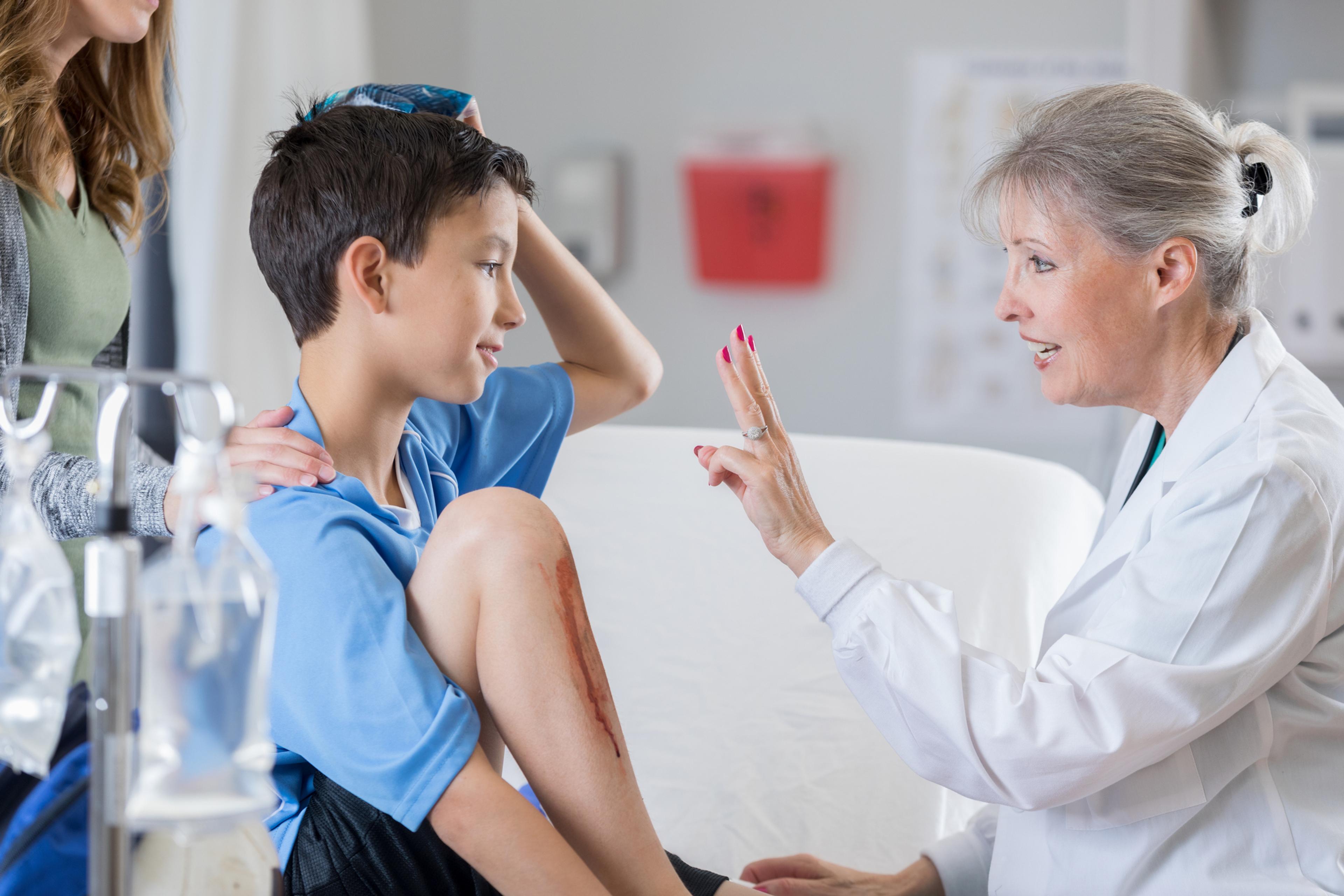Warning Signs to Look for in Children After a Concussion
A Healthier Michigan
| 3 min read

When a child suffers a fall or a blow to the head, a possible concussion becomes a concern. It’s important to know the signs of a concussion, warning signs that need immediate care, and what to do for a child who may be concussed.
What is a concussion?
A concussion is a traumatic injury to the brain, usually mild and caused by trauma to the head. Often children suffer concussions from sports, playing, or activities like riding bikes or skateboards. Even a quick jolt or shake can cause a concussion. According to the Mayo Clinic, falls are the most common cause of concussions.
During a concussion, the brain is shaken and can bounce, grind, or twist inside the head. This results in the injury known as a concussion, mild damage to the brain which affects the function for a short while after.
What are the symptoms of a concussion for children?
If you witness your child suffer a fall, blow, or rapid movement to their head, a concussion will be a concern. Symptoms and signs to look out for after a possible concussion, according to the CDC’s guidelines on pediatric concussions, can include:
- sensitivity to light and/or noise
- headaches
- drowsiness or lack of energy
- foggy or dazed thoughts and feelings
- nausea and vomiting
- irritability and anxiety
- vertigo or a loss of balance
- inability to focus attention or follow events in real time
Symptoms may not present until the child returns to normal activities, according to the CDC, so watch them carefully even if they seem fine right after the incident. Any child or adolescent with a suspected sport-related concussion should be removed from further competition. The athlete should be evaluated to determine if a concussion has occurred. If a concussion is diagnosed, the athlete should not return to play until fully recovered.
Warning signs for when to get emergency care for a child’s concussion
If the symptoms are concerning, you should take your child to get their concussion seen by a medical professional. Symptoms that are immediate warning signs that you should go to the emergency room:
- pupils being different sizes
- any loss of consciousness
- loss of memory
- seizures or shaking
- slurred speech
- difficulty staying awake
- repeated vomiting
- previous symptoms getting worse or not improving
What to do after a child has a concussion
If symptoms are concerning, worsening, or immediate warning signs, you should take your child to get immediate care. If your child is well enough to avoid emergency care, but you think your child may have suffered a concussion, you can help them recover by:
- Limit their cognitive load by making questions and choices easy.
- Let them take it easy and rest for a few days afterward, this may mean staying home from school or a modified school day for some children
- Have them take part in comfortable and relaxing pastimes and activities.
- Make sure they sleep regularly and limit screen time and dim lights leading up to bedtimes.
Related Links:
Image credit: Getty Images





